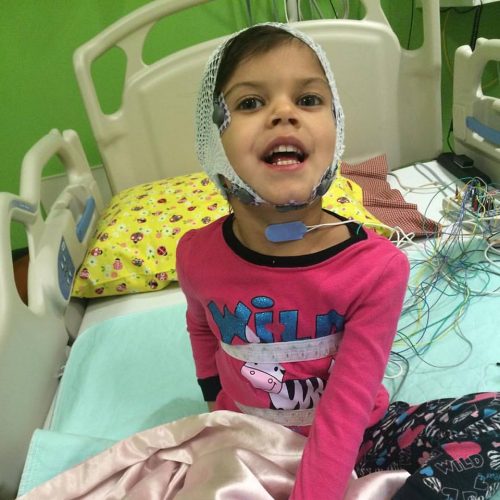The CSER Program: Tiana’s Story from HudsonAlpha on Vimeo.
Victor and Jeannette Vega of Madison, Ala. knew their daughter Tiana was falling behind in her development but had no idea that she would be diagnosed with a condition so rare, it occurs in about 1 in 10,000, and only in girls.
“At around 9 months, family and friends started telling me that there was some kind of a delay, so I just kind of kept an eye on it and figured okay, she’s delayed, but she’ll catch up,” said Jeannette.
This was only the beginning of a two-year journey to a diagnosis for Tiana.
Early signs
When Tiana was about 14 months old, Victor and Jeannette realized Tiana was not catching up, and was missing developmental milestones like getting into a sitting position on her own or beginning to talk.
“She pretty much didn’t have any words. If she did, it would last about a day or so, and then just disappear,” Jeannette explained, “so we got her involved with Early Intervention.” Alabama’s Early Intervention System provides support and services for infants and toddlers with developmental delays or disabilities.
Tiana began speech therapy, physical therapy and occupational therapy on a weekly basis…and then the seizures started.
“She had one that really scared me. Her arms were really shaking, her eyes were twitching and she was screaming,” Jeannette explained.
Soon after, Tiana’s pediatrician recommended they make an appointment with Martina Bebin, MD.
Still undiagnosed
Dr. Bebin is a pediatric neurologist with a special interest in genetic conditions that cause intellectual disability and/or epilepsy and professor of neurology and pediatrics at the University of Alabama at Birmingham (UAB) and Children’s of Alabama. She sees patients at North Alabama Children’s Specialists in Huntsville.
“Tiana was almost two-years-old when she first came to see us in the neurology clinic and the primary reason was concerns regarding her developmental delays,” Dr. Bebin explained.

